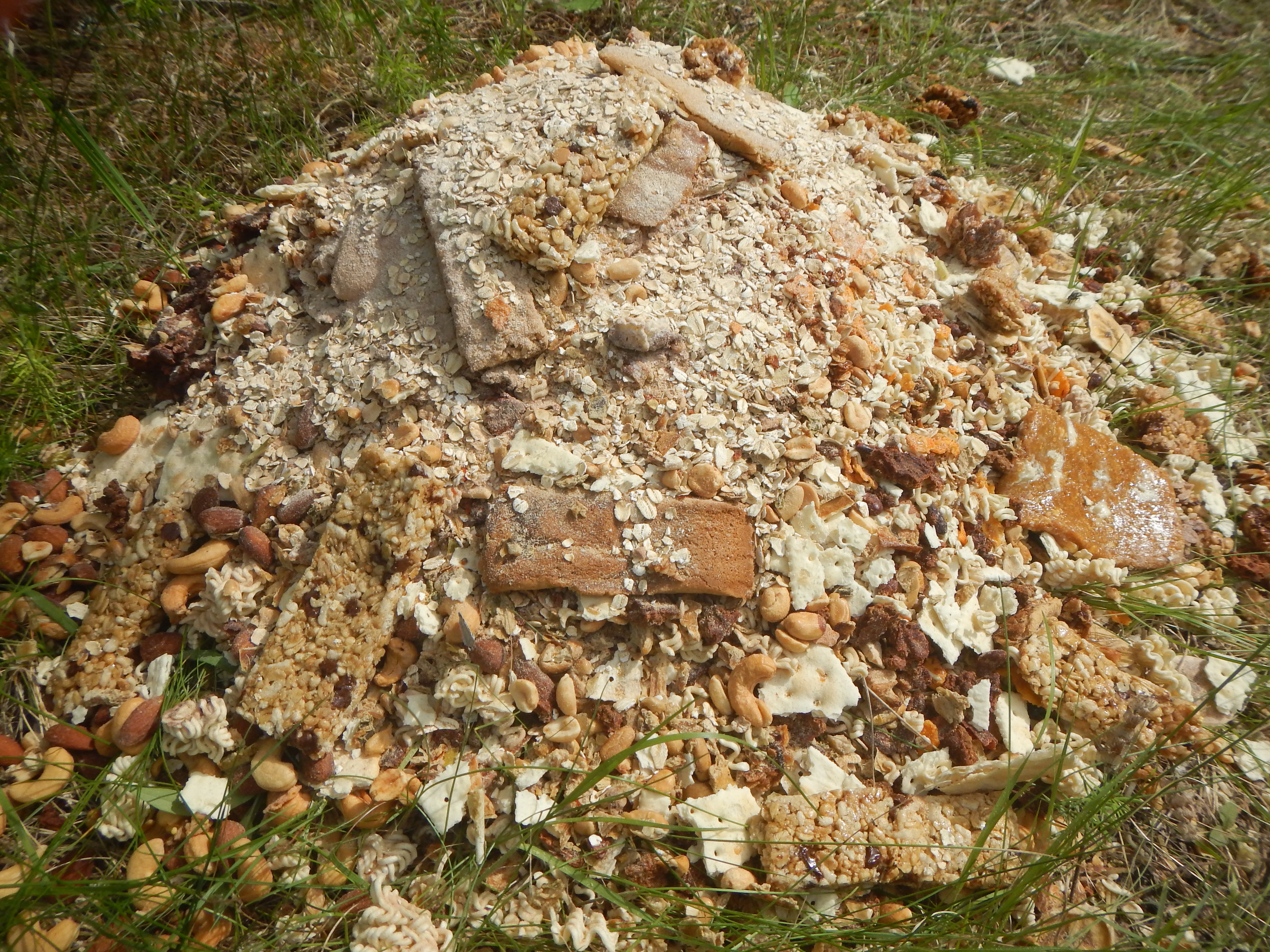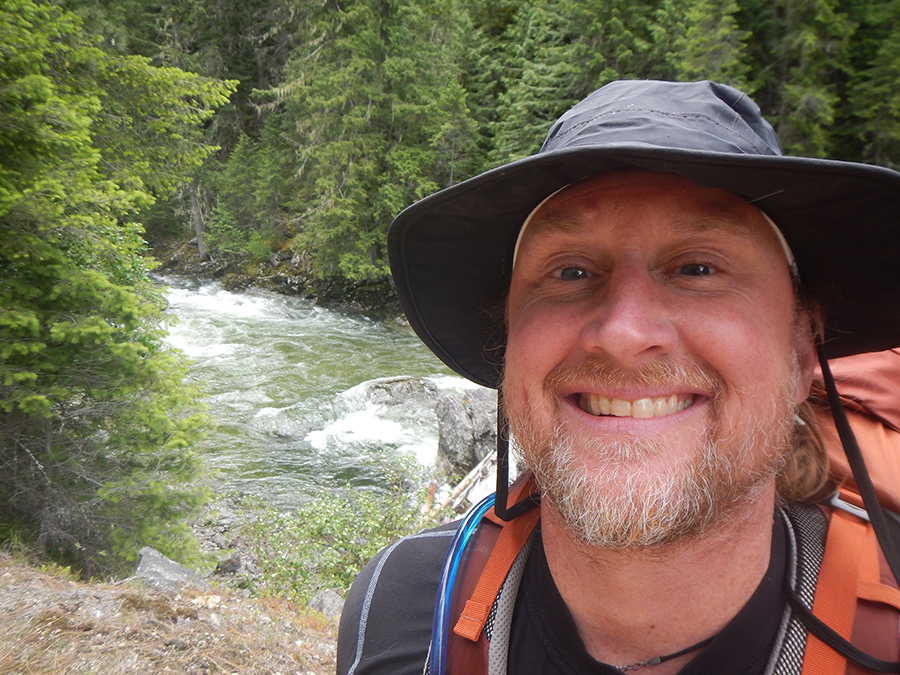| | Brett's post is the first in Wilderness Watch's "Wilderness Experienced," a new platform to share your story of a recent experience in one of our nation’s Wildernesses. Stories can focus on the virtues of Wilderness, including the opportunity for solitude, discovery, spiritual renewal, physical challenge, wildlife viewing, and more, or things you found troubling, that just didn’t seem right in Wilderness and represent the challenges facing the National Wilderness Preservation System. We suggest a length up to 750 words. Include one or two images from your trip, as well as an author photo. Wilderness Watch will review all submissions and reserves the right to decide which submissions get posted. Please send your story to info@wildernesswatch.org. Please do not submit travelogues or writing aimed at directing people to specific places in Wildernesses or trailheads. Thank you! | | Wolf Sightings, Bear-Baiting, and Landing Strips: A Week in the Selway-Bitterroot Wilderness
By Brett Haverstick I just returned from a recent backpacking trip into one of our nation’s first Wilderness areas, the Selway-Bitterroot Wilderness of north central Idaho and western Montana. It was a typical June trip in the Northern Rockies with thunder, lightning, rain, hail, clouds, and sun. The forests were greening up, the rivers and creeks flowing at a strong clip, and the birds were both active in flight and song. My personal trip diary reflected that I observed bald eagles, osprey, red-tailed hawks, ravens, pileated woodpeckers, hummingbirds, western tanagers, Canada geese, common mergansers, and more. About midway through the trip, my dog, Cayuse, and I hiked up the extremely wild Bear Creek drainage in search of solitude and respite from the main Selway corridor. After waking up with the sun shining through our tent, we broke camp and headed up the drainage a bit further. Within a half-mile I heard and then observed a cow elk swimming in the torrent of the creek, and then watched it slowly float beyond us downstream. At first, I thought that Cayuse and I must have spooked the animal, but within a few more minutes I observed a black wolf and then a gray wolf not far from where the elk dashed into Bear Creek. As my eyes fixated on the wolves and my senses sharpened to a fine point, I realized that I was experiencing something very old and primitive. Everything seemed to slow down, and I watched every step the wolves took, as they expressed curiosity in our presence. And then in a moment’s notice, they were gone, and the elk was also way down the creek, and it was just Cayuse and I again alone on the trail. We weren’t alone, of course, but rather, part of something much bigger that I only partially understood. I felt relaxed and at peace in the Wilderness. Two days later I hiked back to the Selway River Trail and took a short break under the ancient cedars to enjoy the shade before making camp further upstream beyond the Selway Lodge, which is a private inholding in the Selway-Bitterroot Wilderness. Soon I noticed that Cayuse was sniffing around the dispersed campsite between the cedars and the trail, and I walked over to put his pack back on. After taking a few more steps, I walked right into a large mound of food on the ground, pictured below. The pile contained oatmeal, granola bars, energy bars, chili, ramen noodles, cashews, and other nuts. It was probably 1.5' tall by 2' wide, and it looked like it had been dumped there very recently, possibly earlier that day. Was it a bear-baiting site? It was black bear hunting season on the Nez Perce-Clearwater National Forests. But would someone actually bait bears just off a main trail and campsite? Unfortunately, I think someone would. | |  | With more miles to cover before making camp, I cussed and cursed and cussed some more to myself as I hiked upstream and processed what I just observed. Two days before I had witnessed gray wolves and elk performing their millennia-old dance, and now I was subjected to a mound of food that had been dumped on the ground just off the most-heavily traveled trail in the entire Selway-Bitterroot Wilderness. What the hell just happened? Why did this happen? Who did this? What is the Forest Service going to do about it? How can we prevent this from happening again? Soon thereafter, I learned that a few individuals, apparently from Indiana, had flown into the Shearer public landing strip that week to bait bears, and had just flown out earlier that day—the same day I observed the huge pile of food. Was it a coincidence? Did someone decide to dump all their food to lighten their pack even though it is a couple of days hike from Bear Creek to a road? I will let you draw your own conclusions based on the evidence I have provided. A bear, of course, looks at a pile of food the same way. It doesn’t matter if the food was set by a baiter, left by a hiker, or dumped by a horse packer, the food is odorous, and an easy meal for a bear. That pile can habituate a bear to human food and will mostly cause the bear to return to this same site, a popular campsite along the main trail corridor in the middle of the Wilderness, where people and families pitch their tent, cook dinner, and sleep under the stars. That pile of food just became a future threat to human safety. And a fed bear is a dead bear. It’s also important to note how those bear-baiters, or anyone else who chooses to, got into the Wilderness: one of the landing strips grandfathered into the Selway-Bitterroot. For the purposes of my trip, I had to walk by the Running Creek and Selway Lodge landing strips (both private inholdings), as well as Shearer, which is administered by the Forest Service and, therefore, public. All three of those landing strips are less than ten miles from each other, with Shearer and the lodge being roughly within a mile of each other. Add the heavily-abused Moose Creek landing strip, which is about ten miles downstream of the Selway Lodge, and there is a gauntlet of four landing strips that serve as a menace to the true spirit and intent of Wilderness. One’s solitude and spiritual awakening is shattered and displaced by the daily buzzing, circling, landing, and taking-off of airplanes from any or all of the strips. In my week on the trail I heard more airplanes than I saw people on the trail. One has to wonder, does anyone walk into the Wilderness anymore? The Forest Service has the authority to close airstrips in Wilderness. On my last morning, I awoke to the soft, swift whispers of the Selway River, and knew that the new day signaled that I needed to hike back to that damn gas-guzzling, fume-belching car waiting in the trailhead parking lot for me. Yes, my Subaru got me to the trailhead, but I am incredibly grateful everything isn’t bulldozed and developed, and that people like Bob Marshall and others had the foresight to lead the charge for an enduring resource of Wilderness. Now it’s our job to make sure that the federal land management agencies charged with the stewardship of Wilderness live up to their end of the deal. When I got home from my trip, I wrote a letter to the Forest Service that advocated for the closure of the Shearer air strip in the Selway-Bitterroot Wilderness, and I included pictures of the bear-baiting pile, along with a description of what I observed. I asked the agency how they intend on ensuring that this never happens again. I hope this story inspires others to seek the gifts of Wilderness and to share their experiences with neighbors, friends, and family, as well as agencies like the Forest Service. This trip has taught me that the spirit of Wilderness still exists if you search for it, but that we still have many challenges and opportunities before us to ensure that wild Wilderness and the National Wilderness Preservation System is preserved for future generations, both human and non-human. | | | |  | Brett Haverstick is Wilderness Watch's membership and development director. | | | | Help us protect Wilderness! All first-time donations matched. | | | | | | | | | | | |